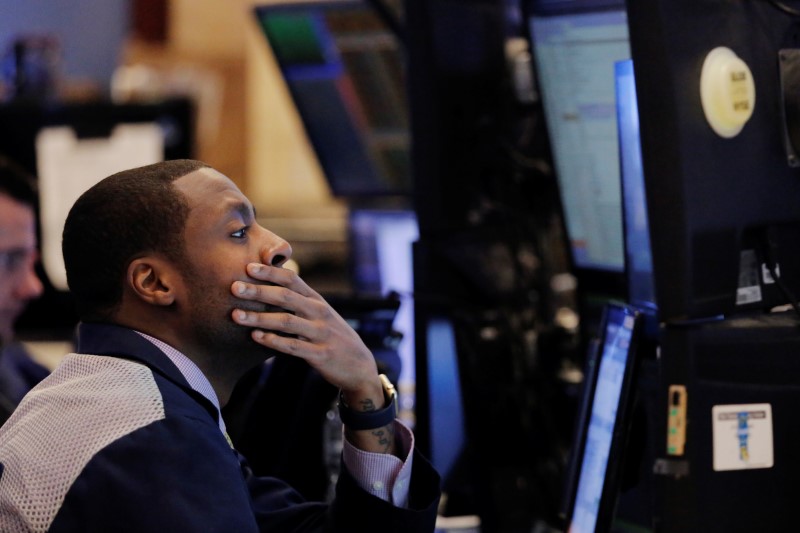Investing.com - Stocks started September with another round of nasty volatility.
The S&P 500 fell 0.69% on Tuesday. The Dow Jones industrials dropped 1.08%. And the Nasdaq Composite was off 1.1%.
U.S. financial markets were closed Monday for Labor Day.
There were plenty of reasons for the slump.
There was the imposition of new 15% tariffs on goods imported from China and a similar tariff imposed by China on U.S.-made imports. The two sides have mostly toned down the rhetoric, but talks expected this month have not yet been scheduled.
A weak report on U.S. manufacturing activity from the ISM dowing contraction in the sector for the first time in three years.
Concerns continued about political chaos in the United Kingdom that could affect the British and European economies. After the close of trading, Prime Minister Boris Johnson lost a vote that allows tomorrow for debate for a no-deal Brexit.
Antitrust worries increased for Alphabet (NASDAQ:GOOGL). Some 30 states are planning to join an antitrust probe of the Internet giant, the Washington Post reported Tuesday. Google shares were off about 1.7%.
And there were new worries about when Boeing will be able to get the 737 Max airliner back in the air. Boeing (NYSE:BA) was off 2.66%, the weakest Dow performer, and contributed 66 points to the Dow's 286-point loss.
Many investors coped with the volatility by seeking safe havens, especially gold and Treasury securities. Gold futures jumped $26.50 to $1,555.90 an ounce in futures trading in New York and there was talk the metal could move higher.
Some stocks held their own because of predictable cash flows and little exposure to geopolitical issues, including American Tower (NYSE:AMT) and Everest Re Group (NYSE:RE).
Among the eight Dow stocks that showed gains were Procter & Gamble (NYSE:PG), Coca-Cola (NYSE:KO) and Walmart (NYSE:WMT), all classic defensive stocks.
The 10-Year Treasury yield fell to 1.472% after hitting a two-and-a-half-year low of 1.429%.
Oil futures moved lower, with West Texas Intermediate crude falling $1.16 to $53.94 a barrel in futures trading. Brent crude, the global benchmark, was off 40 cents to $58.26 a barrel.
With Tuesday's losses, the S&P 500 is 4% from its peak in July. The Dow is off 4.67% and the Nasdaq is off 5.58%. All three indexes remain firmly in the black on the year, however.
But the averages are still below their Autumn 2018 peaks, suggesting that there are powerful resistance forces that could limit the market's gains. Fueling the resistance is the uncertainty caused by the U.S.-China trade fight as well as uncertainty in Europe over Brexit and also economic uncertainty in Latin America.
Wednesday may see some pressure from food processor Tyson Foods (NYSE:TSN), which cut full-year guidance in part because of commodity-price volatility and costs associated with enhancing food safety. Shares fell 6.2% after hours.
In addition, traders will be watching to see where Hurricane Dorian is heading and for signals on where the August jobs report will land. The report is due before Friday's open.
Kidney-dialysis-center operator DaVita HealthCare Partners (NYSE:DVA), American Tower (NYSE:AMT), reinsurance company Everest Re Group (NYSE:RE) and Nextera Energy (NYSE:NEE) were among the top S&P 500 performers Tuesday.
Alexion Pharmaceuticals (NASDAQ:ALXN), IPG Photonics (NASDAQ:IPGP), oil-and-gas producer Concho Resources (NYSE:CXO) and Westinghouse Air Brake Technologies (NYSE:WAB) were among the S&P 500's biggest laggards.
